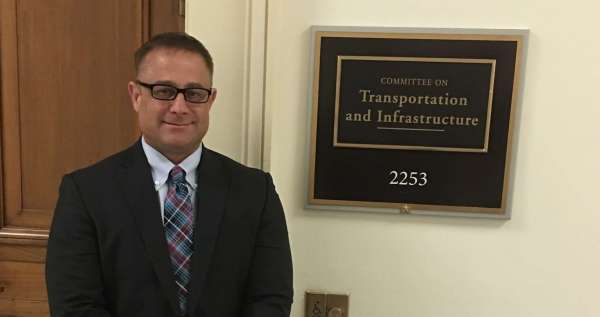
What is a Police Traffic Investigation Report in California?

What is a Police Traffic Investigation Report in California?
A police accident report in CA is an agency form completed by a peace officer or other law enforcement official after a motor vehicle collision. They are filled out to document an officer’s observations and opinions about fault or charges after a suspect’s arrest.
Did the police officer File a Report?
Did you or someone you love suffer severe injuries in a disputed liability car accident in the state of California? Even if you’ve never been in a car crash, you probably already know about police reports.
You probably heard of them on cop shows on TV, but you likely don’t know the difference between a traffic collision report, over a crime report and what involved parties must do to obtain such a traffic collision report (TCR).
In California, a car accident police report is usually created by a municipal law enforcement officer, County Sheriff Deputy, or California Highway Patrol.
Each responding police agency at the scene of a car accident will likely have its own type of California police accident report.

The California Vehicle Code does not require the police to make a report.
Still, it does need certain parties in accidents file a different form with the DMV or local police departments, and depending on the circumstances, fees may also be required.
Below, we will cover what an accident investigation report consists of. We will also include links to various California cities so you can order your police report online or at least learn how to obtain YOUR report swiftly.
Documenting Details & Statements
The typical traffic collision report includes crash-related details, events recalled by those involved in or near the accident (any witness statement, etc.), and other vital information gathered by the police department and other law enforcement agencies during their official investigation of the parties involved. Insurance companies and their claims adjusters and defense and plaintiffs lawyers place a lot of weight on the contents of the incident report. The California Highway Patrol tends to be more proficient at making a car accident police report, in our experience.
In particular, if the investigating officer’s findings indicate that party one is most or totally at fault for the collision, part two is better positioned to win the liability portion of the case without too much wrangling over legal rights. The police report can be a crucial piece of relevant information when trying to resolve the incident on private property and public property with the insurance adjusters and, later, in a California law court.
In this educational article, our most experienced car crash attorneys cover:
- Nature and importance of police reports after a car accident
- How to order a copy of the accident investigation report after your collision
- Types of information typically included in a traffic report
- How courts treat fact-versus-opinion evidence, including hearsay in the reporting officer’s field notes, and
- When traffic reports are admissible in a California car accident case.
Car Accidents and Police Reports in California
What Is a Law Enforcement Officer Accident Report?
In the context of a car accident case, a police report is a written document that is usually generated at the scene of the crash, typically by the responding law enforcement officer. So what exactly is in the police report, and how is it utilized during a motoring accident settlement or legal action?
The traffic investigation report typically contains the following:
- A written notice after a car collision, including names and contact info about people/automobiles/damaged property
- Witness statements from other drivers, bicyclists, pedestrians, other passengers, as well as percipient witnesses
- Accident scene diagram with estimated measurements of distance, speed, path, accident location, point of impact
- Most reports will list the officer’s findings of fault or opinions and conclusions as to who caused the crash and how.
How to Get a Copy of a Police Report
Represented parties usually have their personal injury lawyers order a report after a car accident as an advanced cost on the case. When there are serious injuries, a police report is typically created by the responding officer who was summoned to the accident scene by police dispatch. The police report summarizes crash information, typically with a factual narrative, vehicle information, and the opinions arrived at by the investigating officer and cataloged with a report number.
Depending on the jurisdiction, there may be several ways to receive a certified copy of such an incident report. The standard method will require you to spend money. The other way will likely not cost you out of pocket. To purchase a copy of most police reports, the victim or other party must reach out to the same local law enforcement officials who originally drafted the information as part of its investigation process.
Before departing the crash scene, the investigating officer taking down the history and assigning blame typically provides the driver of each car involved with a report identification number with police contact information so you can get a copy once it’s fully prepared and filed.
Typical Retrieval Method?
Usually, the victim or lawyer providing support will contact the traffic division of the State (CHP) or local law enforcement agency (City, municipal, or County) patrolling and responding to the accident during your auto accident. Assuming the report is ready (LAPD can take 30 days or longer), you will pay the administrative fee (most departments charge around $15). If the report is not ready, you can usually get a face page at least. This usually identifies who the police think was at fault as “party one.” Once the full report is ready, it will be forwarded, and you should have no problem obtaining a copy depending on the facts and the department that responds.
If you were severely injured or failed to get the report identification number, you or your lawyer can give the PD the date (day of the week, etc.), the event’s time, and the accident location. Provide your name and contact information, along with your name, so the person assisting you can review it and locate the report if the agency took any.
What About a Free Copy?
There are several situations where you can obtain a free copy of the police report. One exists where you are charged with a crime, and your defense attorney grabs you a copy. The other common method is to request a copy from the defendant’s insurance adjuster handling your claim or from your insurer. If they requested the report, it doesn’t hurt to ask them for a copy.
At least when you talk to the insurance companies, you will see what they see and better understand their analysis in determining how to pay you. You will also see if any information is inaccurate and decide over protecting the record by demanding the police correct false statements contained in what was initially provided. Irrespective of how individuals obtain a copy of the accident report, it could take several weeks or months for the investigating agency to provide the result and make it available for public consumption.
If you already have a copy of your report and don’t understand it, we can guide you through the narrative today by calling us at (213) 596-9642. Let us view the diagrams, read the facts, determine what is true and what is false and decide how to proceed with your matter after being fully informed of the best option by a lawyer with experience in your state’s court.
Typical Contents of a Police Report?
You will probably experience shock at the crash site and have many questions. You may not notice that the officer is asking others lots of questions too. Usually, the investigating officer and their partner (if any) will inspect crashed vehicles, looking at other details like seeing if anyone is under the influence of alcohol or drugs.
- Confusing Scene
In many cases, the cops are talking to potential witnesses, perhaps making an arrest, or demanding someone submit to a field sobriety test (FST). Investigators and persons under their employer may also be measuring debris fields and distances of skid marks. CalTrans repair crews could note safety issues and make emergency repairs to move traffic along. The streets will be full of rerouted traffic and people trying to access their next stop. Even in a minor fender bender, the whole scene can be a nightmare for all involved if not appropriately led by a capable first responder.
As the lead cop is writing notes and snapping photographs, the ambulance and fire department may be trying to protect victims, and there may be confusion and crying depending on if there was an injury or a death. All the while, the officer or officers are doing their best to speak to each other, maintain order, and try to prepare the draft of the police report.
Lawyers know officers often make mistakes and will use a template from the last crash scene they investigate. This is another reason you want to get that report right away – to correct an error once it’s been reviewed.
Summary: The police report is a summary prepared under the time pressure of the individual filing officer’s observations to investigate the accident.
The traffic accident report could contain the following information:
- Any Vehicle Code violations, citations issued for violations of any law
- Any expert or lay opinions used by the offer to determine the cause of the accident.
- Likely date, time, and location of the crash
- Names of parties and witnesses, including their addresses, phone numbers, and insurance information
- Impact areas on vehicles and property involved in the collision
- Conditions, including weather, roads (potholes, wet, dry, etc.), and crash site visibility
- Diagram of the crash site, including North, West, East, and South, with drawings of vehicles and victims
- Admissions, confessions, and other statements from relevant parties or percipient witnesses.
Opinion Versus Fact Evidence In Police Reports
The data contained in the traffic collision report will usually contain facts gathered by the police, as well as their stand on opinions and conclusions.
- Facts:
For example, the type and model of the car, weather conditions, party names, time, location, and visible damage caused by the crash are legally known as facts.
- Opinions:
Determinations by the cops of who is at fault for causing the collision are called conclusions or opinions. The report and its conclusions are normally considered to be excluded under the hearsay rule unless an exception applies, including being deemed an official business record. There are limitations, and exceptions, like the public records exception, which we will discuss in a future article.
Irrespective of what a police report says, each insurance company will conduct a separate liability investigation and arrive at its own distinct conclusions. Their opinion must be reasonable, however, as insurance companies must handle auto accident claims fairly and in a timely fashion.
Insurance Companies and Car Accident Police Reports
After a reporting a traffic accident claim is reported, the insurance adjusters will begin their own liability investigation. To aid them, the adjustor will want to know if there was a police report. If you made one over the counter later, it would not be as valuable, as it is just your report, unless there are witnesses and maybe a video to corroborate. Perhaps there is a 9-1-1 recording that will confirm you were a hit-and-run victim who came directly to the police department in fear of a dangerous neighborhood.
As noted earlier, a police officer can make glaring mistakes. What they file with the local law enforcement officer may vary glaringly from the insurance company’s traffic collision reports. Sometimes the police report improperly favors one driver over the other, and the insurance companies either argue or deny the insurance claims. This leaves you no choice but to have a car accident lawyer take the car accident case to court and continue negotiations with insurance company authorities.
Are Traffic Collision Investigation Reports Admissible In Court?
As discussed above, police report greatly aids car accident insurance settlement negotiations. Adjustors and their attorneys will use the police report the same way they use evidence in court. They already know the rules and how to prove the exceptions. They know sometimes a court will exclude some portions while allowing others. They see the officer can use the report to refresh their recollection for assistance on the witness stand.
Police Reports Admissible in Small Claims Courts?
Some minor incidents that can’t arrive at a car accident settlement can be resolved in a limited jurisdiction tribunal. In a court of small claims, the parties are often allowed to rely on facts contained in police reports as evidence in auto accidents. (Ex: Parties involved in the accident, types of vehicles involved, visibility conditions, time of day, etc.)
In a trial-by-judge setting, these pro per litigants are not expected to know the complete rules of evidence. Because of this, trial judges will get the parties to stipulate that the police report is an accurate, factual version of the events. However, the judge presiding over the lawsuit will determine responsibility for fault and damages.
Superior Court Trial?
Things can change if your auto accident case is sent out for a full-blown trial. First, state courts and federal courts will have different rules of evidence. California State Superior Courts are courts of state general jurisdiction. California federal courts are Circuit Courts of general jurisdiction.
The applicable rules of evidence will be used to determine whether the police report is “hearsay” evidence, which is “an out-of-court statement by one party to another, used to prove the truth of the matter asserted.”
As noted above, some courts may allow portions of the police report into evidence, and ruling bits fall within the “public records” or “business records” admissibility exception. In other jurisdictions, the hearsay rule may operate to allow or admit other portions of a police report as admissible evidence.
Reasons To Get The Best Car Accident Report
After crashing in a collision, making an insurance claim, or pursuing a lawsuit is not for the faint of heart or unprepared laypeople. A proper police report with the correct information can make or break your case.
Two Biggest Reasons a Police Report May Help You:
- Fault Determination: Shows who cops think was at fault for the motoring collision, and
- Demonstrates Causation: Tends to prove your trip to the hospital and medical expenses, including lost income, and pain and suffering, were related to the actual accident and not another event unrelated to your driving wreck.
If the accident investigation report isn’t exculpatory to your side of the case, you may be in for a battle. Our attorneys are prepared to fight to get your police report corrected if it’s false and take your case on a contingency fee basis until a successful outcome is achieved. We you wounded on the roadway and wrongly painted as the party to blame?
Learn more about how our best car accident attorney can help you win your critical case. Call us 24/7 to get helpful, expert tips and legal advice before the statute of limitations to sue expires in your crucial case. Let us help you recover compensation money while recovering your health from accident-related losses!
Citations:
Categories
- A to Z Personal Injury Podcast
- Car Accident
- Government Tort Blog
- Insurance Law Blog
- Piloting and Aviation Accident Blog
- Premises Liability Blog
- Products Defect Blog
- Recreation-Sports Accident Blog
- Reports
- Service Related Cancer Blog
- Sexual Assault Blog
- Spinal Cord Injury Blog
- Torts, Examples, Explanations
- Train Accidents Blog
- TV, Media & Firm News
- Uncategorized
Firm Archive
Main Los Angeles Location

Michael Ehline
Michael Ehline is an inactive U.S. Marine and world famous legal historian. Michael helped draft the Cruise Ship Safety Act and has won some of the largest motorcycle accident settlements in U.S. History. Together with his legal team, Michael and the Ehline Law Firm collect damages on behalf of clients. We pride ourselves in being available to answer your most pressing and difficult questions 24/7. We are proud sponsors of the Paul Ehline Memorial Motorcycle Ride, and a Service Disabled Veteran Operated Business. (SDVOB.) We are ready to fight.
Go here for More Verdicts and Settlements
